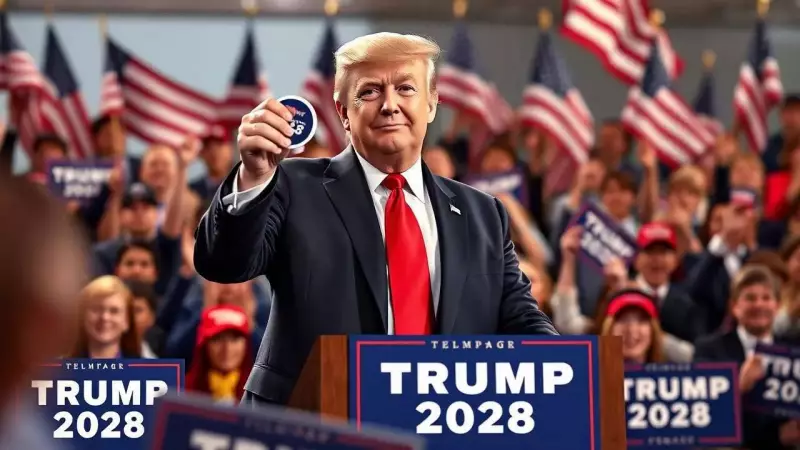
In a groundbreaking political analysis that's sending shockwaves through Washington, author and legal expert reveals the unprecedented strategies Donald Trump could employ to extend his presidency well beyond the traditional two-term limit. This revelation comes as the 2024 election cycle heats up, with Trump positioned as the Republican frontrunner.
The Constitutional Pathway to Power
The analysis points to several constitutional interpretations and historical precedents that could potentially allow Trump to serve beyond 2028. While the 22nd Amendment clearly states that "no person shall be elected to the office of the President more than twice," legal scholars have debated various interpretations for decades.
Key arguments center around several crucial points:
- The technical definition of "elected" versus serving
- Historical precedents of interrupted presidencies
- Potential constitutional amendments or challenges
- The role of Congress in certifying election results
Legal Loopholes and Interpretations
One particularly controversial interpretation involves the technical reading of the 22nd Amendment. Some constitutional scholars argue that the amendment's language leaves room for interpretation regarding non-consecutive terms and the definition of being "elected."
"The Constitution is more flexible than most Americans realize," explains the author behind the analysis. "There are scenarios where Trump could theoretically remain in power through legal technicalities that have never been tested in modern politics."
Political Implications for 2024 and Beyond
This revelation comes at a critical juncture in American politics. With Trump leading in many Republican primary polls, the possibility of his return to the White House raises profound questions about the future of presidential term limits.
The analysis suggests several potential scenarios:
- Trump wins in 2024 and serves until 2028
- Legal challenges to term limit interpretations
- Constitutional amendments proposed by supporters
- Unprecedented political maneuvers in Congress
Historical Context and Modern Application
While Franklin D. Roosevelt served four terms before the 22nd Amendment's ratification in 1951, no modern president has attempted to challenge the two-term limit. However, the current political climate and Trump's unique position within the Republican party create conditions where such challenges could become reality.
The analysis emphasizes that these are theoretical possibilities rather than confirmed plans. However, the mere discussion of such scenarios highlights the evolving nature of American democracy and the ongoing debates about presidential power.
What This Means for American Democracy
Legal experts and political analysts are divided on the feasibility of these scenarios. Some dismiss them as political fantasy, while others warn that in today's polarized environment, previously unthinkable political maneuvers are becoming increasingly possible.
The revelation has sparked intense debate among:
- Constitutional scholars
- Political strategists
- Democratic institutions
- Voting rights advocates
As the 2024 election approaches, this analysis serves as a stark reminder that American democracy continues to face unprecedented challenges and that the rules governing presidential power may be more flexible than previously assumed.





